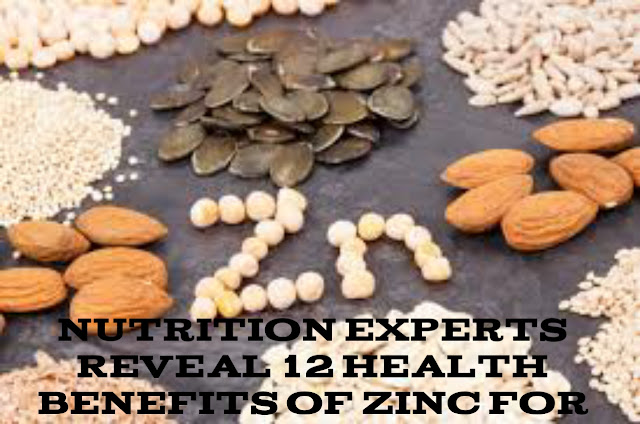Nutrition Experts Reveal 12 Health Benefits of Zinc for Women2023?
It has the potential to support various aspects, including a robust immune system and a well-functioning reproductive system.
Zinc has garnered significant attention in the wellness community, primarily due to its renowned role in boosting immunity, which has become a top priority for many in recent years. However, zinc's benefits extend far beyond its ability to promote a healthy immune system. According to Abigail Basson, PhD, RD, LD, a registered dietitian and NIH-funded instructor at the School of Medicine at Case Western Reserve University in Cleveland, Ohio, zinc is an essential mineral that plays a critical role in various physiological processes within the human body. As a trace mineral, it is required in small quantities but remains vital for overall health maintenance.
According to experts, meeting your zinc requirements through diet is generally quite achievable since the necessary quantity is relatively small, and numerous food sources contain it. These include:
Seafood, particularly oysters and shellfish
- Poultry
- Beef and pork
- Dairy products
- Whole grains (including fortified cereals)
- Legumes
- Nuts and seeds
However, if your diet is not well-balanced or if you follow a strict vegan lifestyle, there is still a possibility of experiencing zinc deficiency. Serena Poon, a certified nutritionist, celebrity chef, and longevity wellness expert, explains that insufficient zinc levels can result in a weakened immune system, impaired growth and development, skin disorders like acne, delayed wound healing, as well as reduced appetite and hair loss.
Health Benefits of Zinc
1. Promotes Wound Healing
Zinc aids in the healing process of cuts, scrapes, and other injuries, helping you recover better and faster. The mineral supports cellular health and collagen formation, making it beneficial for both minor and more severe wounds.
2. Enhances Skin Health
The antioxidant properties of zinc contribute to its positive impact on skin health. By protecting cells from damage caused by free radicals and reducing oxidative stress, zinc supports healthy skin. Additionally, its anti-inflammatory properties may help improve acne.
3. Supports Eye Health
Zinc plays a vital role in eye health, particularly in the retina. It is part of a group of vitamins and minerals that may slow the progression of age-related macular degeneration. Furthermore, zinc contributes to the synthesis of melanin, a pigment that protects the eyes from harmful UV rays.
4. Maintains Heart Health
Zinc is involved in maintaining healthy blood vessels and regulating blood pressure, which are crucial factors in supporting a strong heart. Some studies suggest an association between zinc deficiency and an increased risk of cardiovascular disease, highlighting the importance of further research in this area.
5. Facilitates Growth and Development
Zinc is essential for the growth and development of children. It supports DNA synthesis, cell division, and protein production, which are critical for bone development, maturation, and overall healthy growth during these crucial stages of life.
6. Helps Balance Blood Sugar
Steady blood sugar levels are important for mood, energy, and the prevention of complications, especially for individuals with diabetes. Research indicates that zinc plays a beneficial role in this area. It is involved in the synthesis, storage, and release of insulin, a hormone that regulates blood sugar.
Please note that while zinc offers potential health benefits, it's always advisable to consult with a healthcare professional for personalized advice and treatment.
Recommended Zinc Intake for Women
The recommended daily intake of zinc for most adult women is 8 mg to maintain optimal health. However, it's important to note that the zinc requirement may vary during pregnancy or due to specific health conditions. Additionally, children require a lower amount of zinc. To determine your ideal zinc intake, it is advisable to consult with your doctor. If you suspect a zinc deficiency, it is recommended to discuss your concerns with a healthcare professional. They may suggest a blood test to assess your zinc levels or recommend a suitable supplement if necessary.


0 Comments